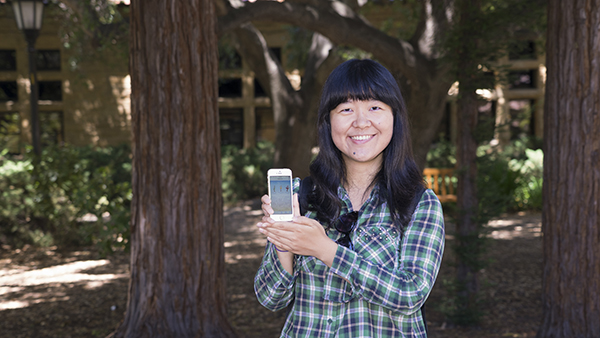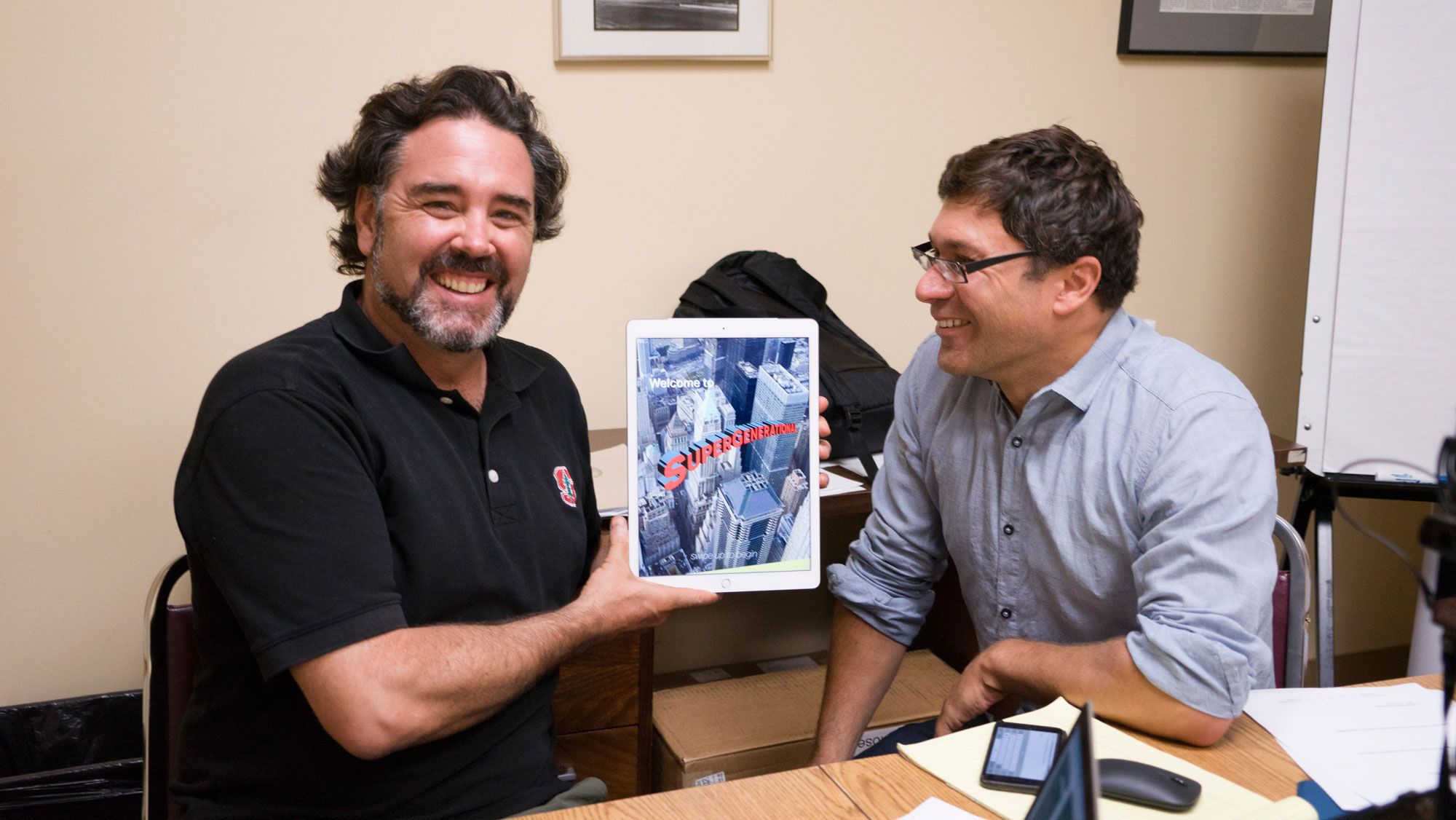

Empowering teachers. Closing educational gaps. Coping with stress. Getting good feedback. These familiar challenges will soon be getting some new attention.
The latest crop of master’s projects from students of the Stanford Graduate School of Education’s Learning, Design and Technology master’s program introduces a slew of different approaches to improving both learning and teaching experiences.
The projects, which range from web apps to teaching kits, will be showcased July 29 at the LDT Expo on campus. It will be held from 4 to 6 p.m. in the Center for Education Research at Stanford (CERAS).
The annual expo culminates the yearlong master’s program and represents an opportunity to turn master’s projects into real-life products, as it has for former LDT graduates.
Sixteen projects, developed either individually or in teams of 24 students, will be on exhibit. They will be presented before experts, potential investors, their peers and the general public.
The highly popular LDT program prepares the next generation of learning technology specialists. It pushes students to develop well-designed technological solutions to educational challenges facing individuals or organizations. Their projects are grounded in learning theories and empirical research, and then combined with human-centered design strategies.
The rigorous program, now in its 19th year, draws students from a range of disciplines and professional backgrounds – but all possess an eye toward creating something that will enhance the learning process.
“The idea is not to start with a cool technology but to start with the problems we need to address, looking at who needs help and why,” said Karin Forssell, director of the LDT master’s program. “Then you can use the technology as appropriate to solve real problems.”
Connecting generations
Alex Barker saw that many students struggle when they don’t get timely feedback on projects in school. At the same time, he noted an underutilized resource – retired seniors – and wanted to find a way to tap their valuable input to enrich the learning experience of students. His grandmother’s death a year ago was part of the inspiration.
His master’s project, “SuperGenerational,” developed with fellow LDT student Lucas Longo, is a video-based platform designed to connect young learners with a curated network of seniors who would act as an audience and give feedback on student work – whether it be a preparation for a cello solo or a class presentation on World War II.
In an era when the nation’s aging population is growing and youths are less engaged with elders, Barker and Longo cite in their project that “there is a magic in skipped-generation relationships” and “children need exposure to wrinkled skin and old ideas.”
The pair tested their prototype app at Avenidas, a senior services agency in Palo Alto, and the Oakwood retirement community in Menlo Park to make refinements. Their hope is to partner with senior organizations to support the learning feedback network.
“The folks who are retiring are incredible assets,” Barker said. “Our young people will have to start seeing seniors as people.”
Busting college myths
Having toured many high schools around the nation as a college admissions administrator, Shelley Williamson saw firsthand how students were ruling out college because they mistakenly presumed it was out of reach. At the same time, overloaded high school counselors were often unable to provide students with college guidance. Williamson’s LDT project, “CollegePath,” seeks to dispel the myths about getting into colleges and demystify the process of preparing and applying for admission.
“Students need to know there is need-based and merit-based financial aid,” Williamson said. “A lot of students are missing out on opportunities, and they wouldn’t have if they had only known the information.”
Williamson’s software platform, designed for classroom integration, provides interactive video vignettes from graduates who were the first in their families to go to college or who had good grades but doubted their college prospects. Practical guides are featured, and game-design strategies are built in to boost engagement: student answers to questions posed in the videos are timed, and they must level up to advance to the end.
With today’s backdrop of widening educational gaps intertwined with socio-economic complexities, the need for a curriculum-like tool to guide students toward college is clear, Williamson said. Even if high school students are getting college information during their junior or senior years, that’s already too late.
"The process of getting to college is a learnable skill, and it's not treated that way," Williamson said. CollegePath is designed to help “students start thinking about the process at the time they should start planning their high school route.”
Alleviating student stress
Mingming Jiang’s LDT master’s project is based on research showing that stress levels among college students are rising while their support systems are shrinking or are not always effective. As social media outlets have only increased student pressures to make it look as if life is all rosy, Jiang’s project, called “Releaf,” could be an antidote.
Releaf is a social networking application where people can seek help from their friends during stressful periods. The underlying concept is that people can help themselves feel better by not only receiving but also giving support.
The app uses a person’s existing online friend network to post anonymous messages to their group. After seeing the anonymous post, friends can choose a recommendation from a slate of research-based coping mechanisms, and then include a personalized message. Stress-relieving suggestions range from sitting and closing one’s eyes to advising someone to set a specific goal, such as completing a task by a certain time. The stressed out friend can “love” the recommendation, or not.
Using trees as the growing and healing metaphor within the app, a person who posts their tough time and “loves” the recommended support from their friends will earn a leaf. Those who help a stressed friend will also get a leaf on their own tree – if their advice is “loved.” The idea is that over time a user’s various trees, representing ways of giving and receiving support, will become filled with leaves.
Jiang, an engineer who studied cognitive science, has long been interested in the social and emotional learning aspect of education. Her master’s project is the latest of several project designs where she has used technology to foster growth.
“A big part of learning is learning how to manage emotions,” she said.
The LDT Expo is free and open to the public.
*This story corrects an earlier version that had an incorrect quote. Williamson said: “Students need to know there is need-based and merit-based financial aid.”
Subscribe to our monthly newsletter.